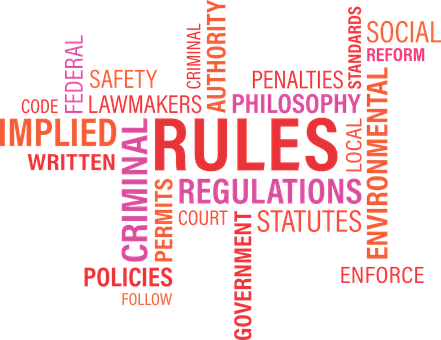
Last week, a pretty interesting legal case with ramifications for search engine optimization came to light. Here are a few snippets from the press release announcing the verdict (emphasis added):
Based on the jury’s verdict, Judge Margaret B. Seymour of the United States District Court for South Carolina, entered judgment today against Search Engine Optimization (“SEO”) and web-hosting firm Bright Builders Inc. on counts for contributory trademark infringement and unfair trade practices for assisting with the construction and hosting of the web site www.copycatclubs.com (“Copycat”), an online business that sold counterfeit [Roger Cleveland Golf Company] golf clubs. The judgment included an award of $770,750 in statutory damages against Bright Builders and $28, 250 in statutory damages against Christopher Prince who owned the web site.
This represents the first time that an SEO/Web Host or other Internet Intermediary was found liable for contributory infringement without having first received actual notification of the counterfeit sales from a third party. The case was presented and pursued by Cleveland Golf/Srixon based on a theory that Bright Builders knew or should have known of the infringing conduct based on the name of the website, the content of the website, and certain discussions Bright Builders had with Prince regarding his web site. The jury accepted this theory finding Bright Builders was liable for contributory trademark infringement of eleven of Cleveland Golf’s registered trademarks.
“For Internet Intermediaries like SEOs and web hosts, this should be a cautionary warning,” says Christopher Finnerty, a partner at Nelson Mullins Law Firm in Boston who represented Cleveland Golf/Srixon. “The jury found that web hosts and SEO’s cannot rely solely on third parties to police their web sites and provide actual notice of counterfeit sales from the brand owners.”
Let’s rewind there for a second. The company that owned the site was hit for $28,250. The SEO (and Web developer/host – I think this role was significant in the ruling) got a grand piano dropped on their heads for more than 27 times that amount. While I didn’t see the contract, don’t know how long they performed SEO services for Prince, or if there were performance incentives, I have to think this judgment dwarfs what Bright Builders ever made on this contract.
Normally I write about search engine marketing and social media for end users, but this case is probably more interesting to providers of SEO services like us. So, if you’re not that, you probably don’t want to read further on for analysis, unless you’re a Law & Order type of person.
What this Ruling Means Legally for SEOs
On the face of it, this ruling didn’t seem to make much sense – at least in terms of how the damages were split. Therefore I reached out to a good friend and practicing attorney Chris Gardill of Phillips, Gardill, Kaiser & Altmeyer, PLLC. Chris will be the first to tell you he is neither an IP attorney nor a litigator, but he’s very much a technophile with a great understanding of social media and way more SEO-related knowledge than 99+% of bar passers*.
* Why does no one call barred attorneys that? That’s a pretty awesome description.
Here are Chris’ notes, which he was kind enough to share and allow me to reproduce on the Found blog. If you’d like to read more of his thoughts on the law, all things Apple, and WVU athletics, follow him on twitter. Note the last several paragraphs for free basic advice on ways SEOs can protect themselves in similar cases, although I’ll echo the common disclaimer that you should consult your own attorney on all contract matters.
Justin,
I have gotten a chance to review the docket of the case you found the write-up on that recently resulted in a jury verdict against the SEO/web host and in favor of Cleveland Golf from the District Court’s electronic filing system. I have also attached the Court’s order denying the SEO’s Motion for Summary Judgment that provides additional clarity to the case, particularly in the areas of the attached document that are highlighted.
The first observation that I would have is that you were reading Nelson Mullins’ press release on the case, so the ultimate ramifications of this case “could” be a bit overstated as there are clearly some marketing aspects in the “article” from them. The second, which is something that is discussed endlessly in law school settings, is that bad facts make for bad law. As you’ll see, this seems to be a very egregious set of facts that may, unfortunately, have far-reaching implications to more legitimate endeavors elsewhere, and it’s a problem that we who work in the legal system deal with regularly. The third is that, regardless of how blind justice is supposed to be, choosing your attorney wisely CAN absolutely make a difference.
With regard to the third observation (yes, I’m going out of order), Cleveland Golf was represented by at least 4 different partners at 2 different offices of Nelson Mullins (a national law firm with hundreds of attorneys and a sub-specialty in IP law) along with local counsel in the case. To say they came to play and dedicated some resources to pursuing this case is an understatement. I can only assume this sort of thing would be a bad problem to such manufacturers, though, so I can understand from that aspect why they pursued it the way they did. Although the lawyer representing the SEO might be just fine, it appears that he (because there was only 1) was at least out of their league. You’ll see that the SEO’s lawyers did attempt to get the case dismissed pretrial with a motion for summary judgment (that led to the court’s ruling that I’ve attached), but it was a poor effort (1.5 page motion) that did not conform to either the Federal Rules of Civil Procedure or the Local Rules of the Court and apparently did not contain any sort of coherent legal argument. Because every court’s rules are basically designed (at least in theory) to not allow an opposing party to escape substantive culpability on mere technicalities, you really have to be pretty bad (or simply not care what you’re writing) to put together pleadings that plainly violate the rules. I will say that you cannot possibly file a summary judgment motion in federal court, though, and have it contain all of the requisite pieces under the applicable rules in a page and a half. Since the SEO’s lawyer got pummeled so badly at the pretrial stage, it’s also safe to assume that Cleveland Golf’s lawyers might have also done a better job convincing the jury of their client’s case, too.
On the first issue, you’ll see that the website that seemed to cause the biggest issue was one that was set up using the domain name copycatclubs.com that boasted on the front page and in the metadata that had been inserted into the site, for SEM purposes I presume, information relating to the site being a place to acquire both original and “copied” golf equipment. That, along with other facts in this case that are mentioned in the Court’s order, made it clear that all of those involved should have been pretty openly aware that the owner was selling counterfeit items. There was also a good deal of information relating to how intertwined the SEO was in setting up the site and also organizing and branding the business that they could not have “not known” that the material they were dealing with might have been problematic on a number of levels. I don’t know this for a fact, but I assume many of your clients who sell goods on an e-commerce site might be similar in that they do not have retail locations, so their website is where all of their business originates from. Because of that, I’m sure the degree that the SEO/web host was involved in the setup of the business and the structure of the site is quite extensive and situations like this are not all that uncommon despite how that issue might be portrayed in the court’s order. However, because of the facts present and the nature of what they were dealing with, it seems pretty plain that all involved knew, or with any amount of common sense, “should have known,” that what they were doing was wrong or improper in some way. In other words, what was going on here was a pretty blatant set of facts and the SEO/web host was in a position that they should have known what they were doing was wrong.
That leads to the problem that I mentioned about bad facts making bad law. Yes, this was a pretty bad set of circumstances and, looking at the situation objectively, I understand how the jury could have found the SEO liable like they did. Does it mean, like the partner from Nelson Mullins says in the release, that all SEOs now have some affirmative duty to be proactive and perform due diligence on behalf of their client or risk being found liable for infringement for things that they assist with posting or somehow enhancing search results on them? Unfortunately for your company, maybe, but I’d like to think not under a better set of facts. I think it would be logical, for example, where an SEO or a web hosting company just steps in to meet with a client about developing a website or some kind of SEO work, provides ideas and is provided with some artwork and content (particularly if the site owner in an e-commerce context later adds the actual content or goods for sale independently of the SEO/host), that there is a compelling argument to be made that the SEO should not be liable. Unfortunately, until this issue is fleshed out in other courts (and, particularly, appellate courts), it is just an argument and it will take further court cases or, for example, legislative changes to our patent and trademark system in the country, to achieve more certainty.
There are probably some learning points to take away from this case, though. The biggest one is probably to examine the contract or engagement letter the SEO uses when they are engaged to perform work for a client, and determine if the agreement contains any information relating to the intellectual property the SEO is being asked to work with or provided by the client. In light of this case, in an ideal set of circumstances, the agreement should contain representations that the client warrants to the SEO that it has the appropriate licenses, intellectual property rights or whatever else to have a right to use whatever the SEO is being asked to post to a site or somehow promote or manage for search/ad purposes. Such a contract provision should also have the client providing an indemnity to the SEO for any infringement claims, so that the client is required to indemnify/hold harmless/defend the SEO with regard to any claims that might be made by a third party at a later time like what happened here. Taking some basic steps like examining what the SEO’s contract says, as well as exercising even a bit of common sense judgment when meeting with a client or during the engagement to make sure what the SEO is being asked to do is not somehow blatantly illegal, will serve the SEO well later if a problem were to develop.
I hope some of this commentary helps you with the situation. With the caveat that I gave you earlier, you can feel free to use it or post about it like you discussed before if you think it would be helpful to others. Obviously, if you have any questions about what I’ve written or other aspects you’d like to talk about, don’t hesitate to ask.
For more on trademarks and other legality related to SEO and advertising in search engines, please check out any of the following:


